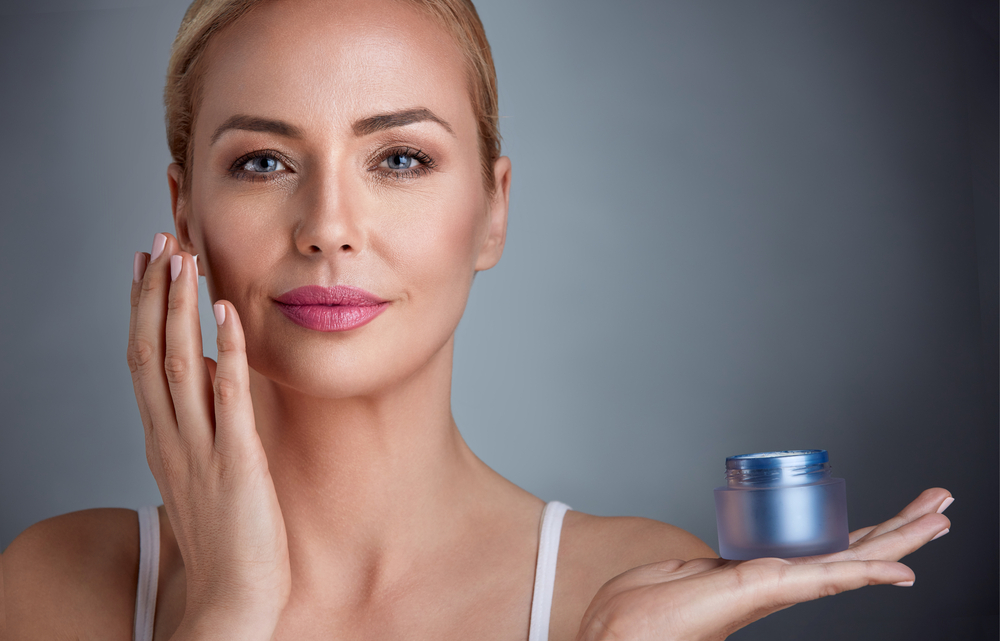What must be in it? What really helps? The most important active ingredients of anti-aging care and what they can do.
Unfortunately, you cannot simply cream away any wrinkle in this world. A healthy lifestyle and beneficial genes are the prerequisites for a fresh appearance.
Anti-aging active ingredients that do what
The cosmetics industry promises a lot. But do the anti-aging ingredients really work and reduce our wrinkles? It sounds obvious to use the power of nature and use stem cells from apples for skin care. But can they ever influence our human skin cells? We have once listed them, the ingredients that can soften the signs of the times and perhaps even prevent them from developing. You should know these eleven active ingredients of anti-aging skin care:
1. Glycerine
Glycerine can bind water in the skin for several hours, the surface profile of the skin is smoothed and dry wrinkles disappear.
2. Retinol
Retinol is the pure form of vitamin A (more precisely: vitamin A1). It is used as an effective remedy for wrinkles, sagging skin and pigment spots – this has been proven by many studies. Even a low concentration builds up connective tissue and inhibits enzymes that break down collagen. Favorable side effect: It helps with acne. But: Retinol can irritate sensitive skin, make it thinner and therefore more sensitive to the sun.
3. Ceramides
They form the skin’s own barrier – if you supply them from the outside, they protect the skin and make it plumper.
4. Minerals
Minerals also support the skin’s natural supply of nutrients: silicon, which strengthens the cohesion of the cells and makes the skin denser and firmer. The natural moisture cannot evaporate and there are no wrinkles caused by dryness. Magnesium helps the skin cells get oxygenated and it is soothing. Calcium is said to support the renewal process of the cells, whereby the skin becomes thicker and smoother again. Phosphorus also shows this effect. Folic acid is said to protect against cell nucleus damage.
5. Vitamin C
Vitamin C has a threefold effect against skin aging: it supports collagen formation, has an antioxidant effect and brightens pigment spots.
6. Hyaluronic acid
Extremely popular in any form of anti-aging care: Like a sponge, hyaluronic acid can store an enormous amount of moisture and thus acts as a natural cushion for the skin – especially for wrinkles caused by dryness.
7. Phytohormones
Over time, the female body slows down its production of estrogen – especially during menopause. The cells slow down. The hormone replacement from plants (for example soy or yams) is supposed to stimulate this process again.
8. Peptides
Peptides are the body’s own protein building blocks that signal the cells to start the skin’s natural regeneration process. For example, they stimulate the skin to produce collagen.
9. Polyphenols
They can be found in green tea, in grape seeds or even in anti-aging products. Polyphenols are antioxidants. Means: These oxygen compounds trap free radicals, which are extremely harmful to the skin.
10. Q10
This coenzyme also acts as a radical scavenger. It is also crucial in obtaining the energy required for skin metabolism from nutrients.
11. Alpha lipoic acid
Another effective antioxidant is alpha lipoic acid. It also catches free radicals. Your advantage: It develops its effect in all types of tissue (both aqueous and fatty). In fact, research says alpha-linoleic acid can create repairing enzymes that remove collagen damaged by UV light and heal micro-scars.


